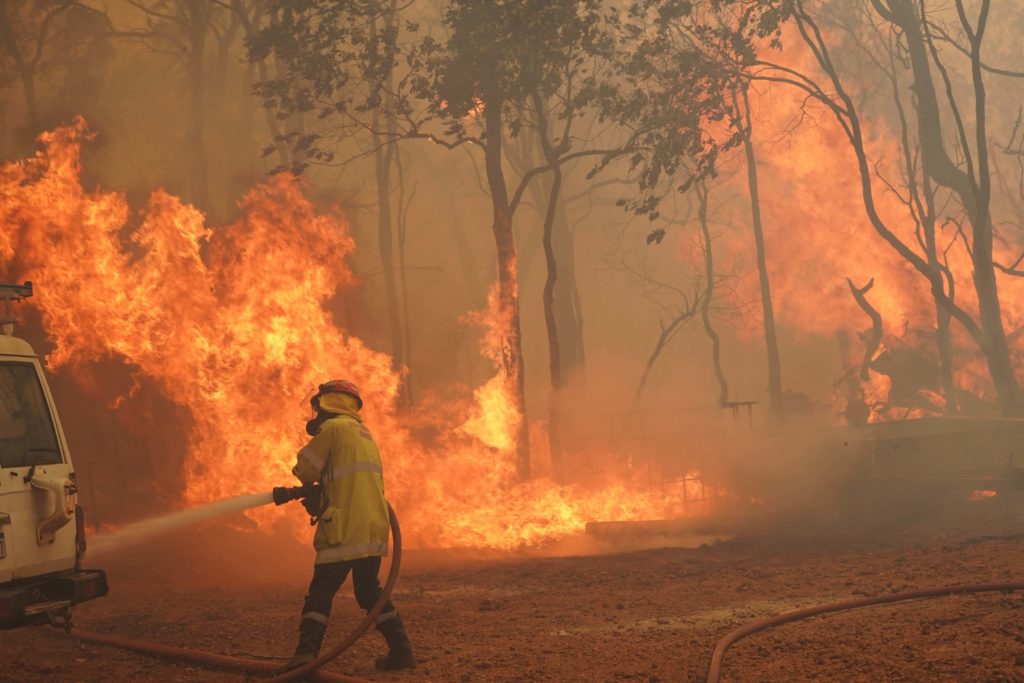Where we’ve been
Every year, the LGIS Board of Directors head out to one of our regional members, to see firsthand the excellent services and facilities local governments provide to their communities.

Due to the nature of the activities that bushfire volunteers are engaged in, many of them are already “risk aware”. However, it is important local governments ensure all bushfire volunteers receive adequate education and awareness around the hazards associated with being a volunteer, and how they can fulfil their obligations – and go home safe and well.
It’s important to have a reasonable and practical approach when dealing with volunteers as their time and availability may be limited.
Some fundamental procedures your local government should look to implement include:
Local governments should have a health and safety policy outlining their commitment to providing a safe workplace. This should extend not only to workers, but volunteers and visitors as well.
It’s important that all workers and volunteers understand their individual roles and responsibilities for a safe workplace. All workers and volunteers are expected to:
Follow processes, procedures, and instructions
Report all hazards and incidents
Encourage and promote positive safety behaviours
Participate in training where required
Assist in risk management activities
Communicate and consult on safety matters
Take good care of equipment and use it correctly
In addition to the above, additional education and awareness on the following topics may be advantageous.
Every year, the LGIS Board of Directors head out to one of our regional members, to see firsthand the excellent services and facilities local governments provide to their communities.
Installing the wrong furniture in the workplace can be a real pain the neck – or even the back or the shoulders.
The past year has thrown up many challenges, at home and internationally. Extreme weather events, bushfires, a global pandemic, just to name a few.
Alcohol and other drugs usage can become an occupational health and safety issue if a volunteer’s ability to exercise judgement, motor control, concentration and alertness is impaired, leading to increased risk of injury or incidents. This includes legally prescribed and some over the counter medication.
Providing education and awareness on the subject can be invaluable, and should be supported with processes and procedures.
When a person has exceeded their physical and mental capabilities, their body begins to decrease in performance.
Volunteer fatigue and burnout are a genuine concern, and volunteers need to be vigilant in self-assessment and identify fatigue-related behaviour in the people they work with. This cooperative approach removes the stigma associated with admitting you may be fatigued and emphasises the shared responsibility of managing fatigue effectively and looking out for each other.
Here in WA we can experience long periods of extreme heat which increases the risks when working on a fire ground. All volunteers need to take care of each other, particularly those with medical conditions. Key ways to manage this risk include:
Getting enough sleep is the single most important factor for volunteer bushfire shift workers. Speak to your supervisor about any concerns and ensure you have sufficient rest between shifts.
Bushfire volunteers need to understand how to report safety concerns and incidents. This ensures local governments are aware and can address any issues.
It is vital local governments provide bushfire volunteers with guidance on the types of hazards and incidents that should be reported.
Type of incidents and hazards may include:
Having a health and safety issue resolution process promotes effective communication and consultation between the local government and the volunteers. The resolution of safety issues at the local level is vital in promoting a safe work environment.
LGIS are here to support local government and the volunteers to ensure injuries and illnesses are handled efficiently. With a team of allied health professionals and workers’ compensation claim managers, there is assistance and support services available to bushfire volunteers and their supervisors who are managing the injured person, specifically with the following:
Injuries resulting from local government volunteering duties.
Personal Accident claims
Liaising with key parties including medical and allied health professionals
Seeking alternative duties to support rehabilitation and recovery
Return to work and volunteering
Bushfire volunteers provide a vital and important role in assisting local governments to protect their communities. Ensuring they are embedded within your organisation, and understand your policies and procedures, will contribute to a positive and safe work environment.
For further support in managing bushfire volunteers please contact LGIS on 9483 8888.

Many WA local governments have waterways within their area, and must work together with other entities – such as the Department of Water, landowners, and state government agencies – to keep these waterways, and the people who visit them, safe.

When hiring a new staff member it is important to ensure they are able to perform the inherent
requirements of the role and have the required skills, qualifications (applicable to the level of the role) and knowledge to perform the role they are employed to do.

Psychological injury claims are expected to increase in 2021 with the ongoing stress of living through a pandemic.
LGIS is the unifying name for the dedicated suite of risk financing and management services for WA local governments, established by the WA Local Government Association in conjunction with JLT Public Sector (part of the Marsh group of companies). LGIS is managed by JLT Public Sector (ABN 69 009 098 864 AFS Licence 226827).
Risk Matters, via this website, is designed to keep members, their staff and elected members informed on topical risk management and insurance issues and LGIS programs and services.